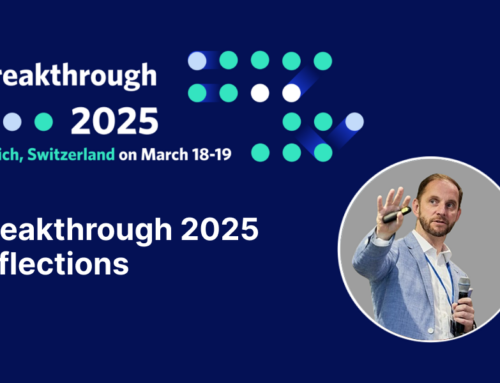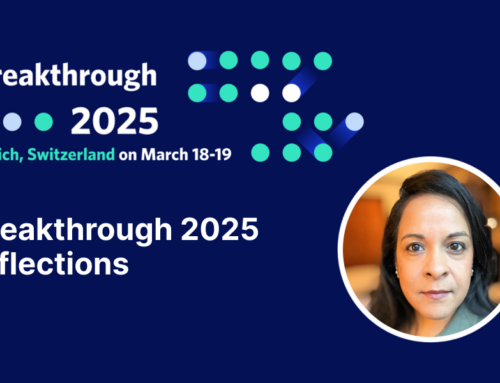“Driving insights to action” was this year’s DIA Annual conference theme, and represented a perfect fit for where ArisGlobal LifeSphere® technology is innovating and evolving to strengthen and streamline product lifecycle management for good clinical practice and good regulatory practice. In two interconnected sessions, ArisGlobal’s subject matter experts presented “How Cognitive E2E Pharma Platforms Can Transform Productivity” in DIA’s Innovation Theatre. Vitthal Gouri, Head of Clinical Business Unit, and David Scanlon, Senior Director of Regulatory Strategy, showed how a cognitive, cross-domain platform enables an enterprise-level approach that transforms pharma with a process-driven approach that unifies every facet of the product lifecycle.
For those that couldn’t attend these sessions, this blog shares some of their collective insights.
Getting products to market faster and tackle rising trial design costs are long-standing priority issues for life sciences companies. These same companies are faced with equally long-standing barriers — multiple heterogeneous solutions deployed in disparate ways, poor data visibility, limited process and data intelligence, and relentless investments in legacy solutions.
Breaking Down the Barriers
Life Sciences companies are starting to work more collaboratively, and the need to break down these barriers has become acute. Today’s pharma companies are working with multiple external partners including CROs and vendors, academia, vendors, other life sciences businesses and regulatory authorities. At the same time, processes need to flow more seamlessly between different functions, including clinical, regulatory, and safety. For example, many activities in clinical overlap with regulatory activities, such as the management of key documents, issues related to patient safety, as well as data standards and governance.
While efforts have been made to improve the process of bringing a product to market through good manufacturing practice, good clinical practice, good pharmacovigilance practice and good regulatory practice, inconsistent approaches to how data is handled internally have led to each function developing its own standards and resulted in weak data governance.
One approach companies have considered to address the challenges they face is using web-based services with some integration enabled by middleware. The problem with this approach is it doesn’t deliver a single source of truth, and all too often companies end up with version incompatibility. The result is they can’t harmonize processes across the global enterprise.
Adopting a Unified Approach
Recognizing these challenges, there is a steady move by progressive companies toward a unified approach across the product lifecycle, leveraging a cognitive cloud platform. The fact is that drug development is now a clear E2E process that requires unification of systems, data, and processes and collaboration with external partners. Consider the processes from clinical development to new drug approval. Processes begin with the study proposal onto planning and setup, followed by site activity, then study conduct and finally study closure.
It’s also important to separate unification from integration. They are not the same and, in fact, integration may not be practical or necessarily ideal. After all, there are many stakeholders involved, making integration extremely difficult, as well as different functions needing their own systems and within each of those functions many different business processes. A cognitive cloud platform, on the other hand, makes it easier to share data and processes and ensure the right version is being worked on by each stakeholder without a massive technology overhaul.
There are further benefits to a cognitive cloud platform approach, including the ability to leverage industry best practices to achieve compliance and high quality, efficient and cost-effective upgrades thanks to multi-tenancy, and open architecture that allows easy integration with third-party solutions, meaning companies aren’t locked into a single solution.
Learn more about ArisGlobal’s LifeSphere Cognitive Cloud Platform, including LifeSphere Clinical and LifeSphere Regulatory.




